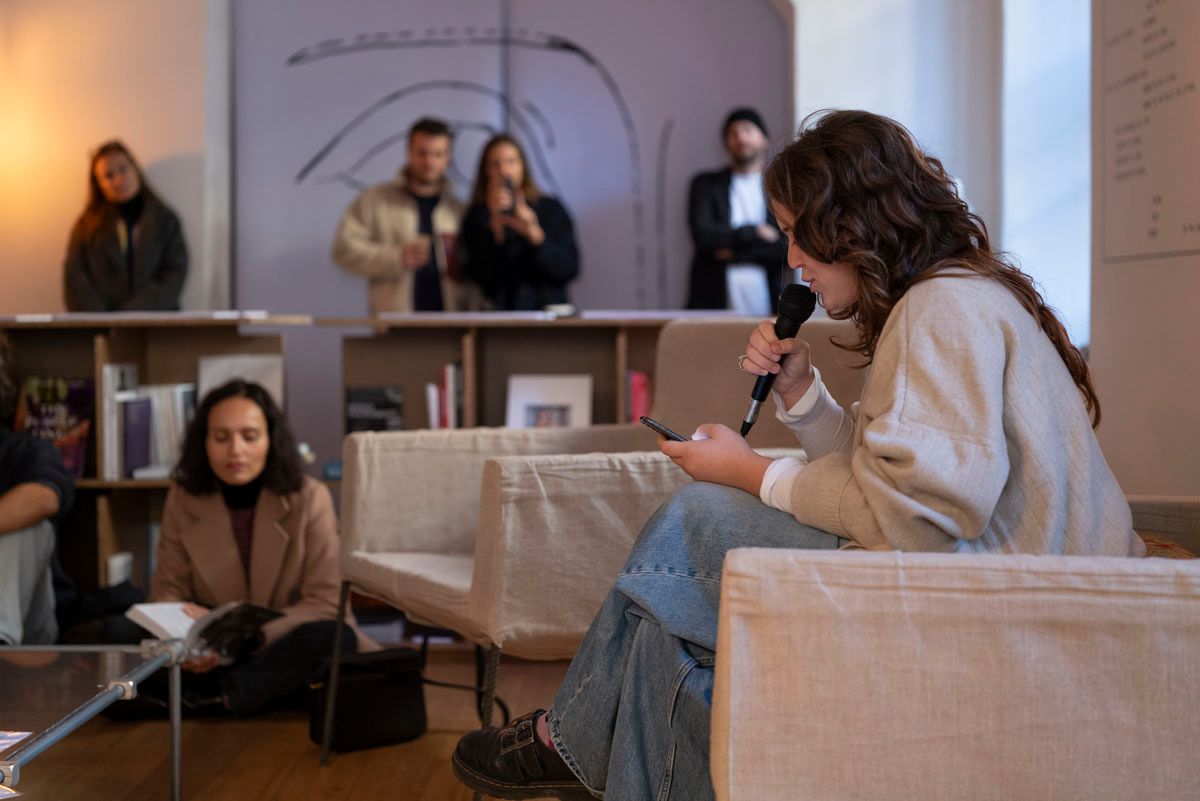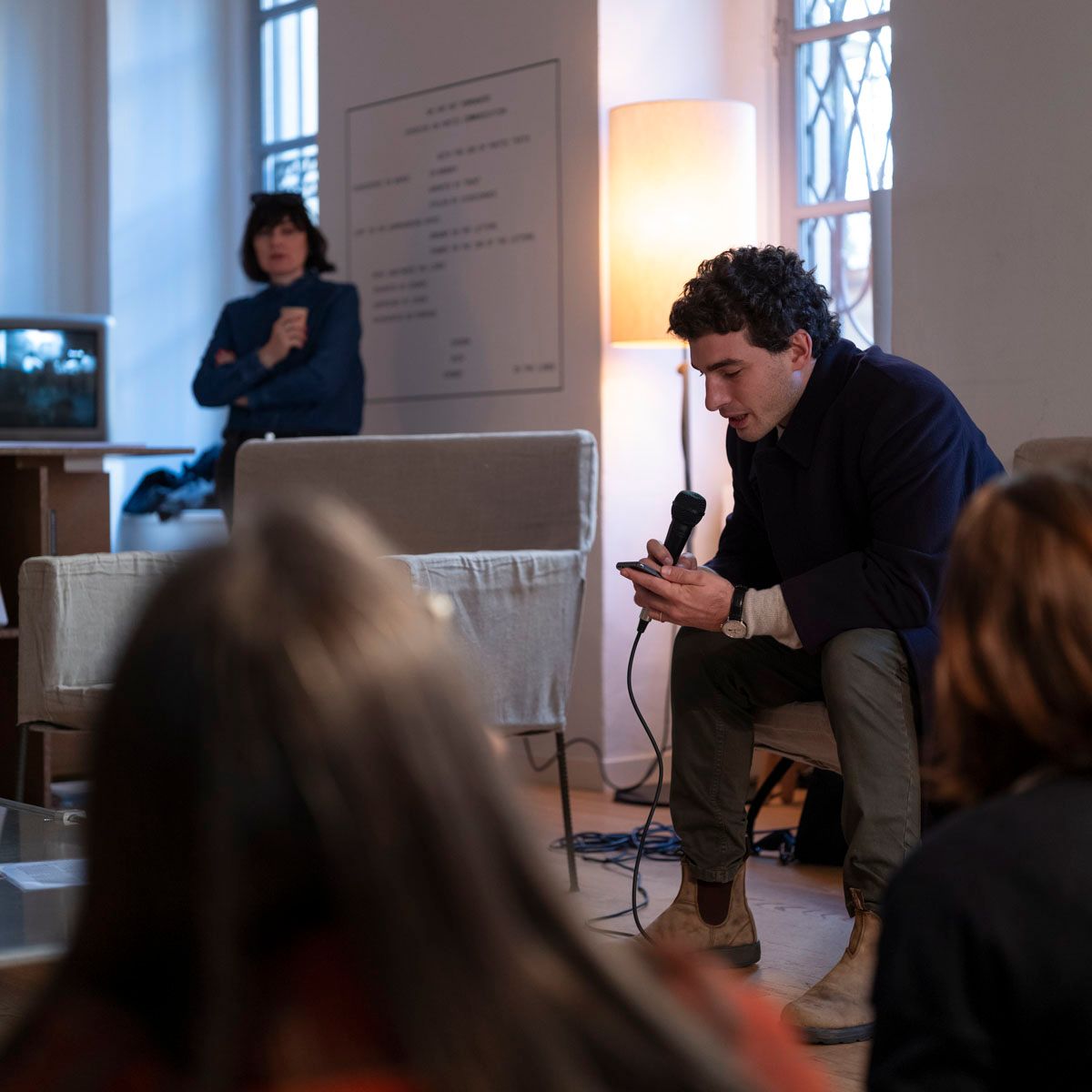Ernesto de Sousa
November 3 - December 16, 2023
WE ARE NOT SOMEWHERE
Ernesto de Sousa with Other Aesthetic Operators
Curated by Lilou Vidal
With contributions by: José de Almada Negreiros, Pedro Barateiro, Riccardo Benassi, Isabel Carvalho, Hanne Lippard, Sarah Margnetti, Treffen in Guincho (Filipe André Alves, Hugo Canoilas, Clothilde, Vasco Futscher, Sophia Hörmann, Fernando Mesquita, Thea Möller, Nikolai Nekh, Sofia Montanha, Pedro Diniz Reis, Maddison Rowe, Andreia Santana and Anna Schachinger)
Ernesto de Sousa (1921–1988) was a major and multifaceted figure from the Portuguese avant- garde. This exhibition and publication explores the various aspects of his oeuvre (visual, poetical, and theoretical) and his outstanding inventiveness of concepts.
After a first large institutional exhibition at the Galerias Municipais in Lisbon made on the occasion of the centenary of the artist’s birth, this new iteration continues to open up an intergenerational dialogue through the work of contemporary artists, conveying us to think about new historical perspectives and new narratives in the context of Paint It Black. The work, the texts and the archive are summoned up and re-read by a generation of Portuguese and international artists with the public playing the role of “aesthetic operators” and working in an operational mode of collective engineering that combines art and life.
Inspired by and borrowing the title from the 1969 mixed media interactive work from Ernesto de Sousa’s Nós Não Estamos Algures - Exercícios sobre a poesia comunicação (We are not somewhere - Exercises of Poetic Communication ), the project aims to explore the poetic of variability and indetermination and the mechanisms of the art production by creating a shared space of conviviality.
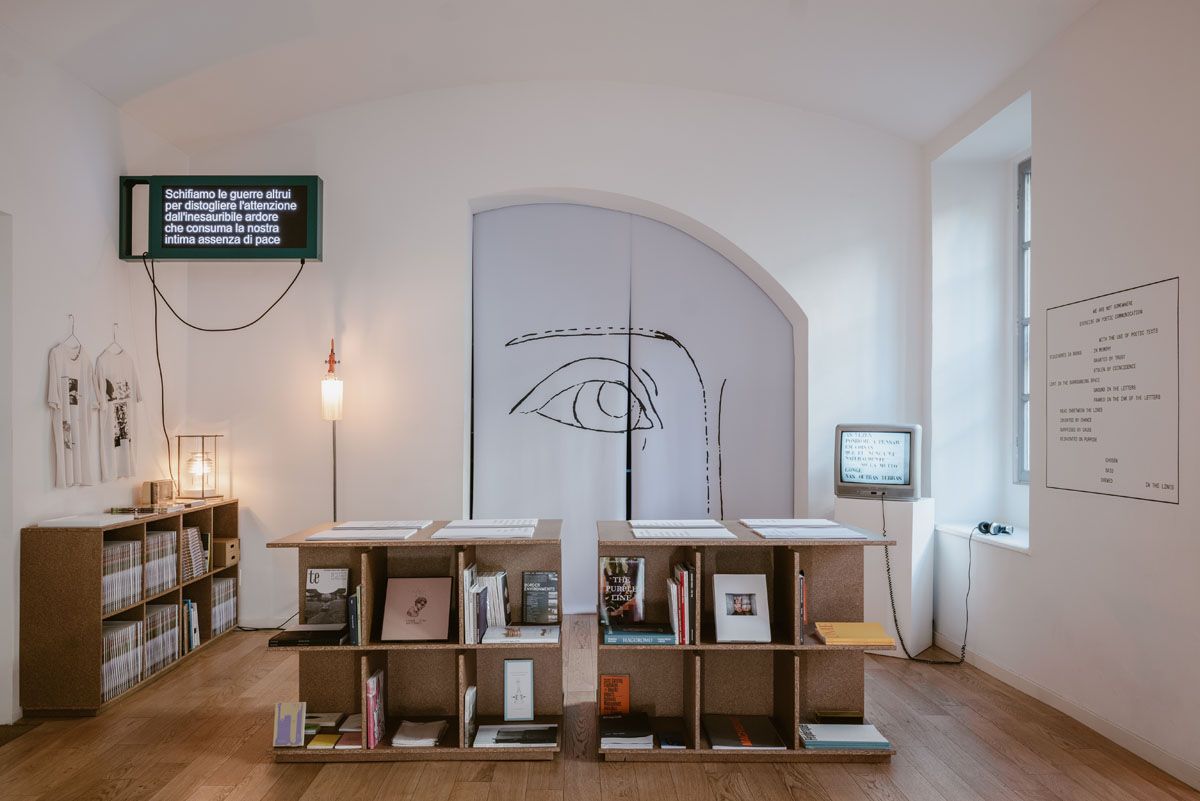
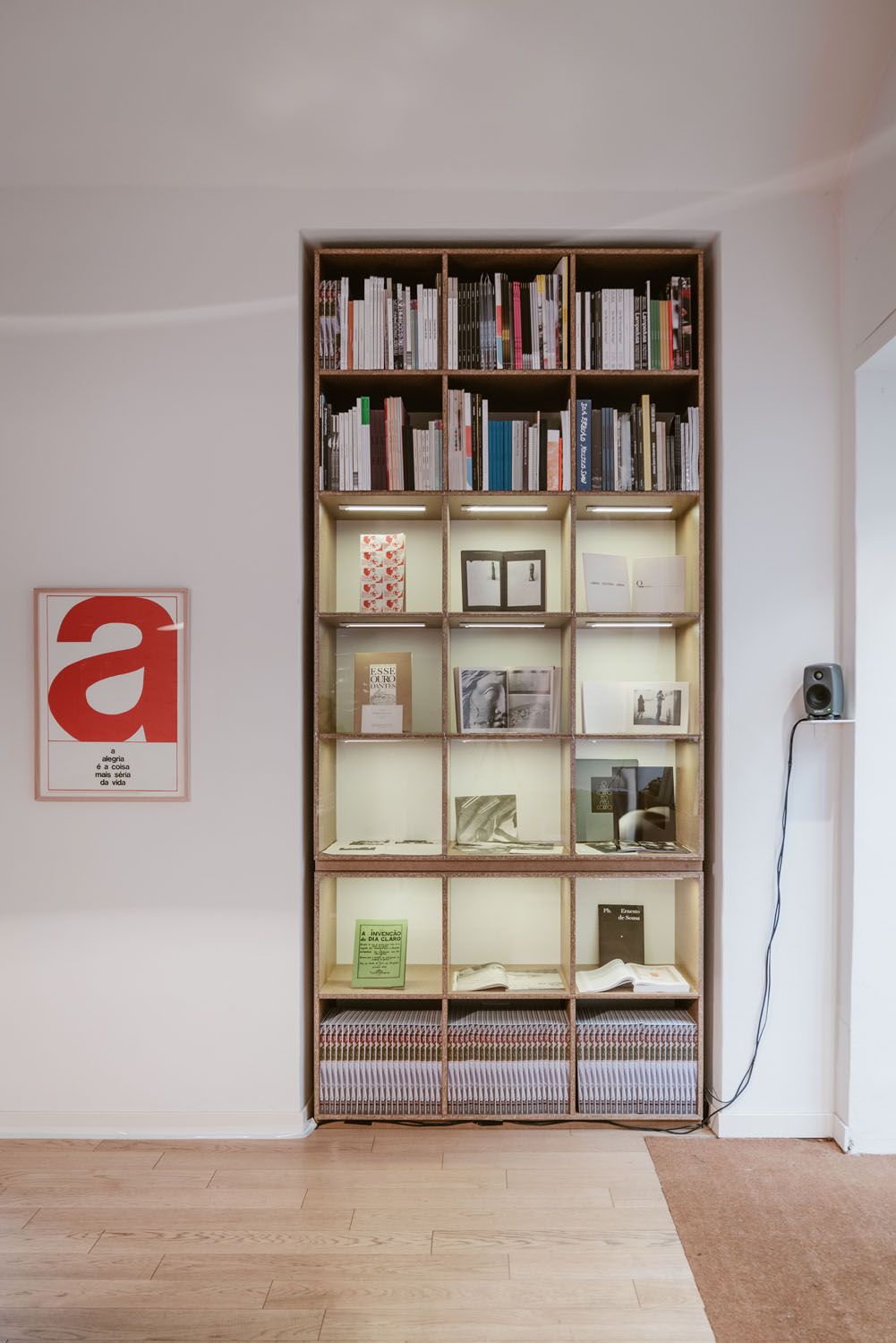
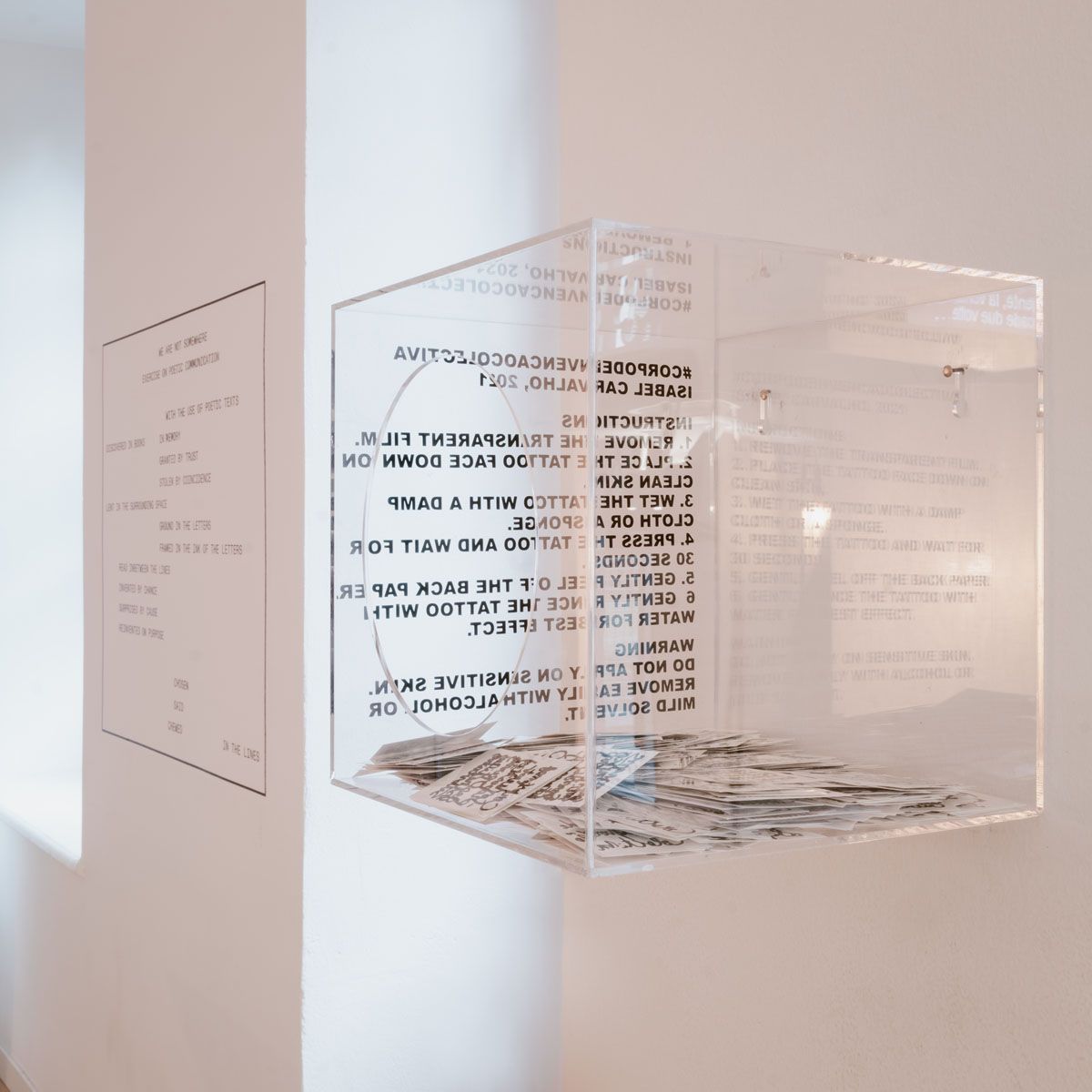

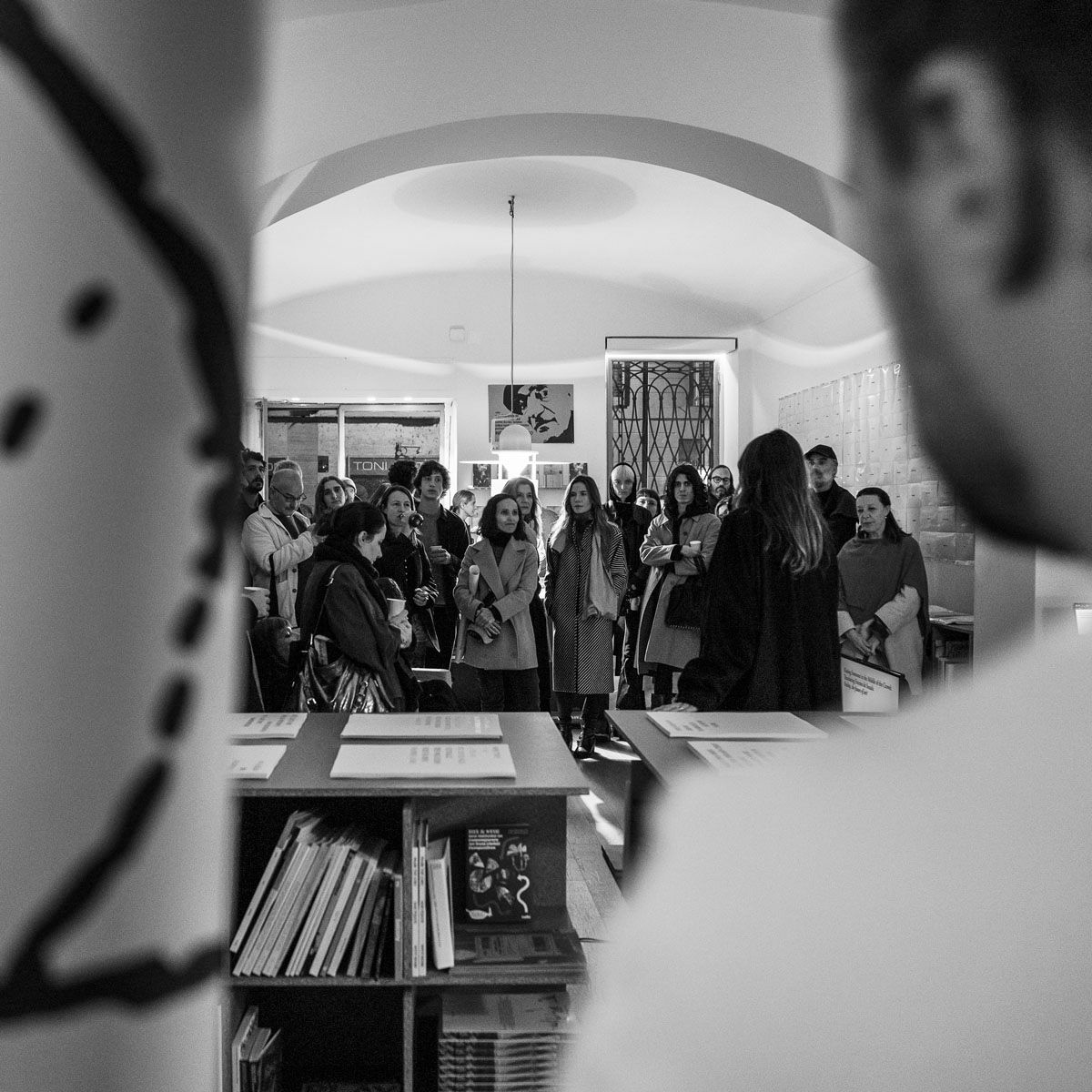
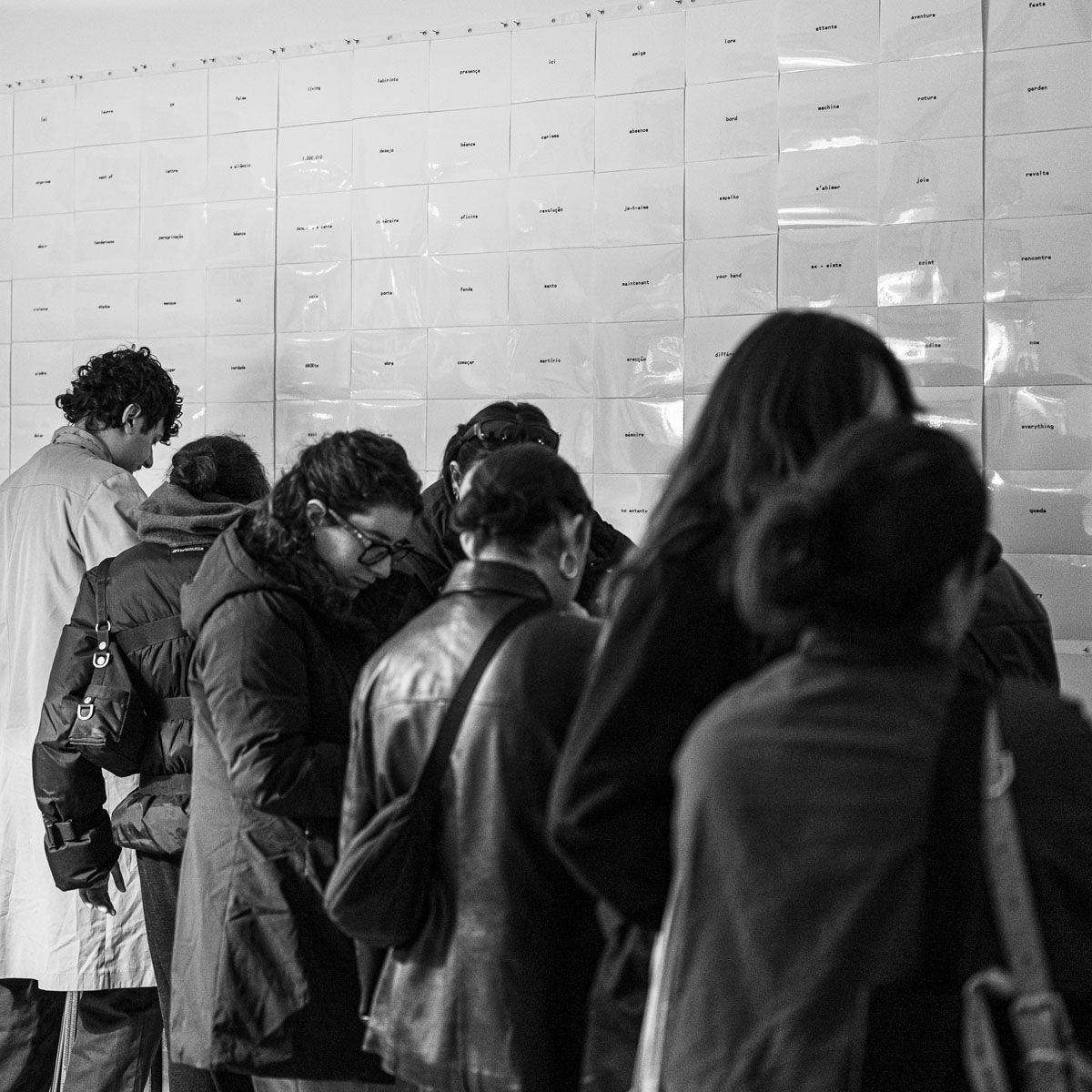
EXERCISE OF POETIC COMMUNICATION with other aesthetics operators
Addressing to the diversity of voices and the open format of poetry as a vehicle of communication, the public was invited to play an active role in selecting a text/poem of their choice for a shared experience of togetherness.
“That is why our exercise does not end, or if you wish, it can end every night, not with applause, but with a supper through which we try to live a different kind of communication and togetherness".
